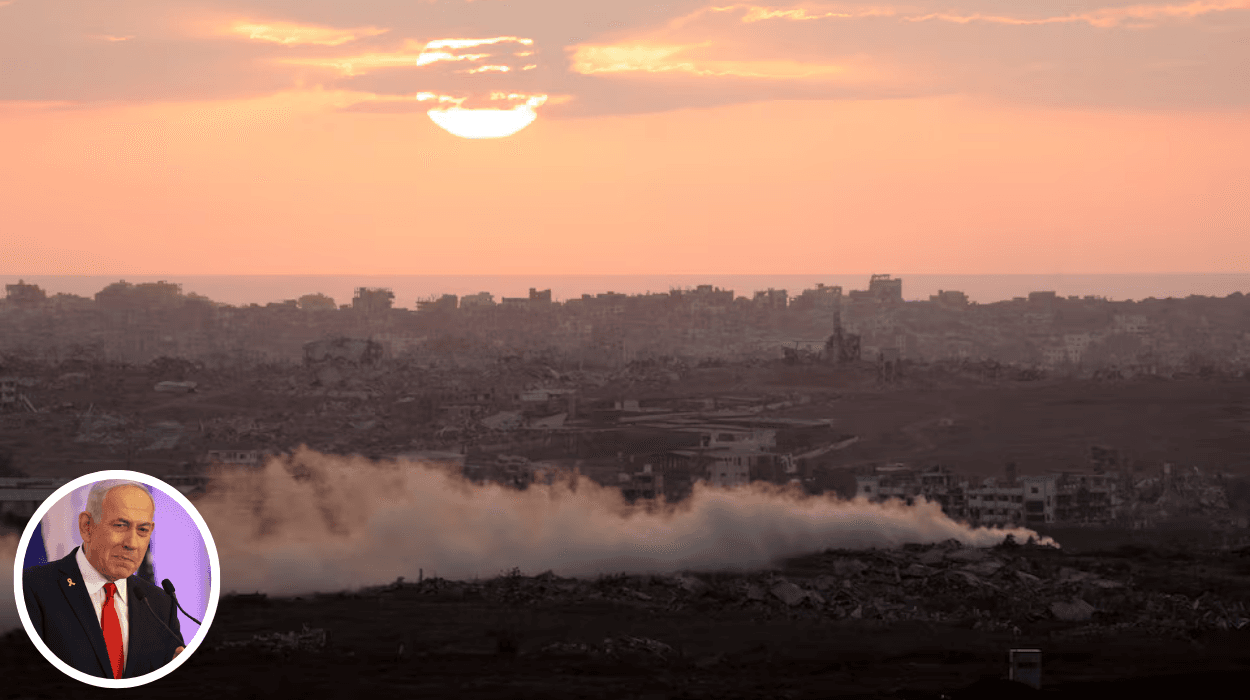Summary
- Ceasefire negotiations between Israel and Palestinian groups in Gaza have broken down.
- Israel is now determining its next military and diplomatic steps in the Gaza conflict.
- The collapse follows intense fighting and significant casualties on both sides.
- International actors had been involved in mediating ceasefire efforts.
- The situation on the ground remains volatile, with ongoing humanitarian concerns.
- No immediate resolution or renewed talks have been announced.
- Both sides maintain firm positions, complicating prospects for peace.
The recent collapse of ceasefire talks between Israel-Gaza marks a critical juncture in the ongoing conflict that has gripped the region. Despite intensive diplomatic efforts involving regional and international mediators, the failure to reach an agreement underscores deep-rooted divisions and competing demands from both sides. Israel is now poised to reconsider its strategy, weighing potential military escalations or alternative diplomatic measures, while Gaza faces worsening humanitarian conditions amid sustained hostilities. This impasse not only threatens further escalation but also prolongs the suffering of civilians caught in the crossfire, casting a shadow over immediate prospects for peace.
What happened to the ceasefire talks between Israel and Gaza?
As reported by multiple international news sources, the latest round of ceasefire talks aimed at ending the ongoing conflict in Gaza has collapsed. This marks a significant setback after weeks of intense hostilities, with diplomatic efforts failing to bridge the gap between Israel and Palestinian factions in Gaza. The negotiations, which involved intermediaries from regional and international parties, concluded without an agreement, leaving the conflict unresolved.
Why did the ceasefire talks fail?
According to statements from officials and media analysis, the breakdown can be attributed to fundamental disagreements over terms, including security guarantees, territorial concerns, and humanitarian access. Israeli leadership expressed concerns over ensuring the disarmament of militant groups, while Palestinian representatives demanded an immediate end to blockades and military operations that have severely affected civilians.
What are Israel’s options now following the failure of ceasefire talks?
Israeli officials are reportedly weighing their next steps carefully. According to unnamed sources close to the government, options on the table include escalating military operations to further degrade militant capabilities or seeking alternative diplomatic channels to isolate or pressure Hamas and other factions. The Israeli Defense Forces (IDF) remain on high alert, with movements indicating potential intensification of operations pending political directives.
How is the humanitarian situation in Gaza affected post-talks?
Humanitarian actors have warned that the ceasefire talks’ collapse aggravates an already dire situation in Gaza. Hospitals and aid organizations face increasing strain due to ongoing hostilities, with limited access to essential supplies and medical care. Reports from field correspondents highlight mounting civilian casualties and displacement amid infrastructure damage.
What role has the international community played in the ceasefire efforts?
International mediators, including representatives from Egypt, the United Nations, and other regional powers, have been actively involved in brokering talks. Despite these efforts, entrenched positions and security concerns have stalled progress. Diplomatic sources indicate continued behind-the-scenes activity aiming to restart negotiations, but no immediate timetable has been disclosed.
What do leaders on both sides say after the talks collapsed?
Israeli Prime Minister and military officials have reaffirmed their commitment to Israel’s security and emphasized the need to neutralize threats posed by militant groups in Gaza. Palestinian leadership condemned the continuation of military actions and called for renewed international pressure on Israel to cease hostilities and lift the blockade.
What is the broader impact of the continued conflict?
The failure of ceasefire talks intensifies instability in the region, affecting neighboring countries and international relations. Experts caution that prolonged conflict risks further deterioration of peace prospects and exacerbates humanitarian crises. Public opinion in both Israel and Palestinian territories is increasingly polarized, complicating peacemaking efforts.
In summary, the collapse of the ceasefire talks leaves Israel facing critical decisions regarding its approach to the Gaza conflict. The humanitarian toll mounts as diplomatic efforts stall, and the international community watches closely, hopeful yet cautious about possibilities for renewed dialogue. This ongoing crisis continues to dominate regional security concerns and global diplomatic agendas.

